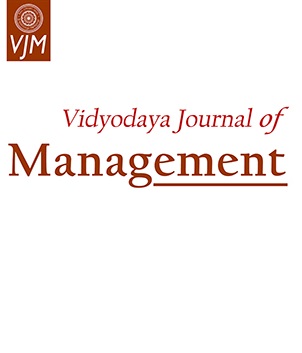Spas in the Socio-Cultural Geography of Sri Lanka: Interrogating the Social Space of Spas through Lefebvre’s Spatial Triad
DOI:
https://doi.org/10.31357/vjm.v9iII.6589Abstract
The focus of this paper, the organisational entity termed the spa, signifies a local place with a significant presence in the (semi)urban areas of Sri Lanka. Spas play diverse roles within the local specificity, as legally endorsed wellness service providers and, on the contrary, as places of commercial sex work. In this context, we explore the social construction of the spa within the broader socio-cultural geography of Sri Lanka, utilising a socio-spatial perspective. For this purpose, we draw upon Henry Lefebvre’s conceptual spatial triad to examine the ongoing spatial practices, representational space, and representations of the space of the spa. In doing so, this paper provides insights into the way in which the interplay of class and gender relations in the local geography of Sri Lanka forms this organisational entity as a distinctive social space. Informed by a qualitative methodology, the paper draws on data generated from in-depth interviews conducted with the social actors who occupy the urban spas of Sri Lanka, specifically the female spa workers who form the labour force of these spas. Focusing on an organisational context that has become a space of tension in Sri Lankan society, the study provides original insights into the complex socio-political dimensions producing this unique social space in the urban geographies of Sri Lanka.
Keywords: Class Relations, Gender Relations, Socio-Cultural Geography, Power, Social Space, Sri Lankan Spas






